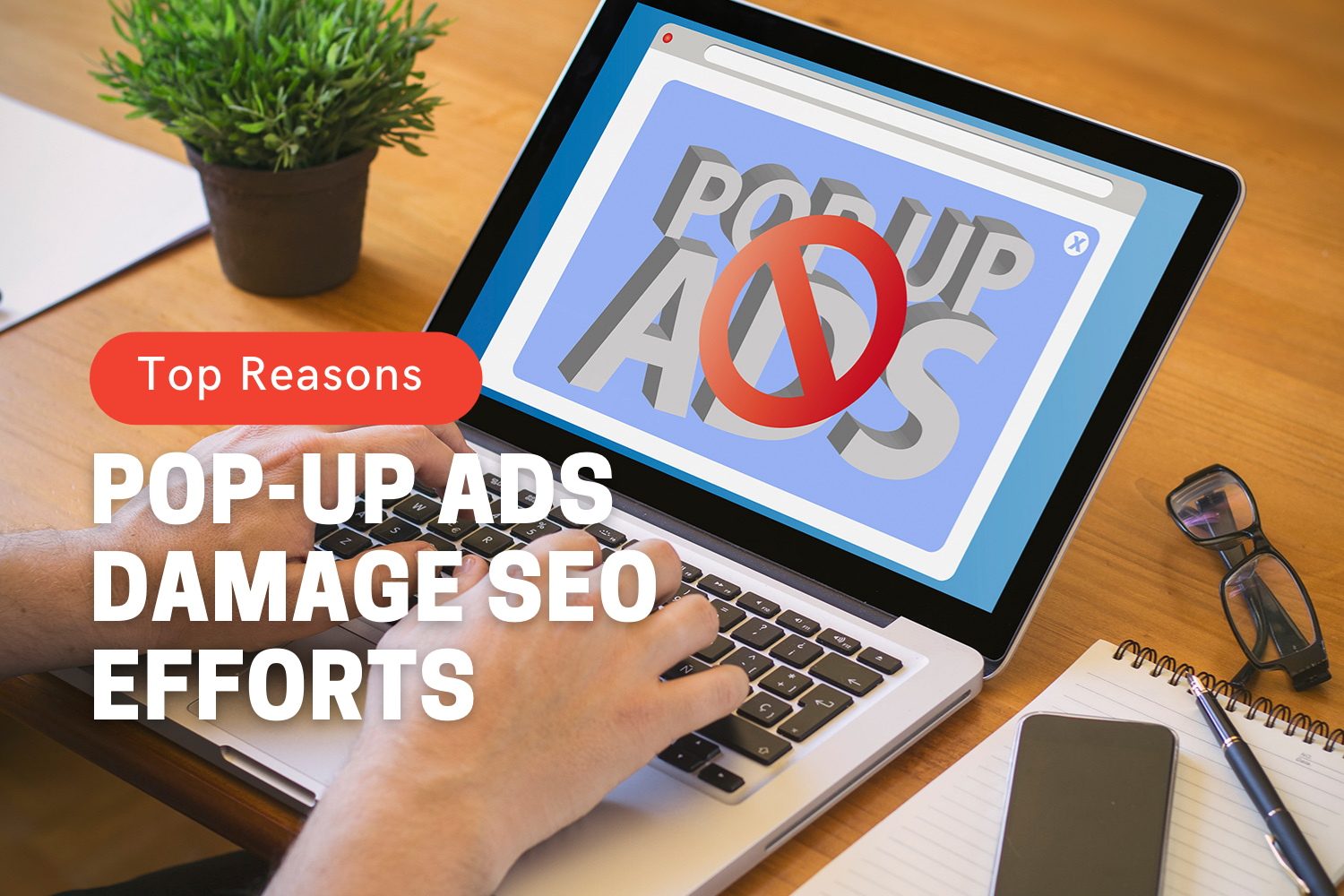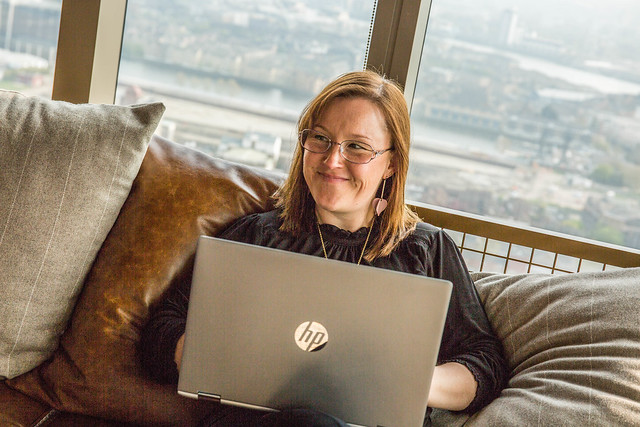
Top Reasons Why your Pop-up Ads May Damage Your SEO Efforts & Improvement Tips
A vast number of internet users have already found a way to get rid of pop-up ads. From convenient adblockers to apps like VPN, all of them can put ads out of sight. So, let’s dive deeper into the subject of pop-up ads damage SEO efforts.
Search engine rankings are essential nowadays. So much work goes into SEO and reaching the desired position. But the hustle does not stop once you get there.
After all, now you have a chance to convert the traffic from Google into leads. Many websites do acknowledge the power of pop-up ads and use them for sales. Here are reasons why your pop-up ads damage SEO efforts.
However, pop-ups and ads are undergoing massive changes thanks to Google. Back in 2017, the company has issued new rules regarding intrusive interstitials. It means that a website must feature ads and pop-ups related to a product or content displayed. Google also updated its Search Quality Raters Guidelines recently, which brought even more changes in SEO.
What are Intrusive Interstitials?

Before we go any further, we need to address the previously mentioned intrusive interstitials. This term might not be familiar to everyone, and it is vital to understand it. While Google might avoid giving comments about particular areas of SEO, its official guidelines directly address the intrusive interstitials.
These are pop-ups that appear over the entire screen, covering a whole webpage. You have probably seen them at least a couple of times on your mobile phones. Intrusive interstitials are indeed a mobile thing, and Google sees them like it. Websites that use this type of pop-up ad can be “punished” by Google.
Remember that mentioned punishment is only for mobile pop-up ads. The official guidelines are okay with smaller pop-ups, pop-ups that ask for legal information, and pop-ups on computers or tablets. Allowed intrusive interstitials should also have a visible close button.
How do Pop-Up Ads affect SEO?

Pop-up ads do wonders for marketing and conversion. It is one of the main reasons why numerous websites choose to use them. Websites can customize these types of ads to match a visitor’s profile which is a huge plus. Not to forget that pop-up ads are easily seen, and you can make them even more engaging by using captivating design.
But are there any downsides to using pop-up ads? Can these ads damage your SEO?
Considering that Google employs humans that rate websites by following the Search Quality Evaluator Guidelines, pop-up ads could indeed harm your SEO results.
For instance, pop-up ads can prolong the loading time of a website. Google emphasized several times in the past how important loading speed is. It was widely believed that this was one of the top factors that influence the final SEO ranking. However, this was later debunked by one of the webmaster trends analysts at Google. While loading time is a big deal, it will not spoil a search engine result.
On the other hand, user experience can make or break a webpage in terms of ranking. According to a Hubspot survey, pop-up ads are not among the favorite things users want to see on a page. The survey revealed that 73% of testees dislike pop-up ads. The chances are these users will close the window as soon as they see an annoying pop-up ad, and this move alone can damage your SEO.
Overall, users are irked by pop-up ads. It is why most of them use various ad blockers and browser addons that hide ads. These make browsing a lot more enjoyable without feeling pressured to click on advertised products or services. Private browsers also do the work and block unwanted pop-up ads.
Of course, some go a step further and install apps with integrated ad-blocking features. One of them is NordVPN’s CyberSec. According to a NordVPN review, this app can also block malicious websites, which can help you avoid malware and phishing attempts. So, users are not only able to block pop-up ads but also improve their online security. Plus, if you are wondering is NordVPN good for speeding up your browser, the answer is yes.
How to use Pop-Up Ads correctly?

We cannot deny the power of pop-up ads, so if you still want to use them on your website, you need to learn how to do it properly. It means creating tasteful pop-up ads that will not make your visitors leave the webpage. Plus, you need to follow Google’s guidelines.
1. Think like a Visitor
User experience is everything, so you must see your website through the visitor’s eyes. It can help you place pop-up ads correctly without covering up your content or being interruptive while they explore your webpage. Evaluate the value of your pop-up ads. It should be of use to your visitor. So, include something interesting to them, like a coupon or discount code or a piece of information.
2. Improve loading Time

While it will not drastically affect your SEO score, keep an eye on pop-up ads loading time. Tools like Google PageSpeed Insights can tell you the exact numbers if you already have pop-up ads on your webpage. Identify the ads that load slower than the others, and then make improvements to your website. Start by updating the script you have. Remember that HTML ads load faster than those with photos. If you use images in the ads, compress them as much as possible without losing the quality.
3. Work on the Timing

Keeping in mind that users are not thrilled about pop-up ads, it might be best to time them better. For example, a pop-up ad that shows up as soon as you load the page is undoubtedly annoying by everyone’s standards (including Google). So, think about displaying a pop-up ad after a user spends a couple of minutes on a website or scrolls through 50% of the content. It can be fantastic for websites trying to grow their mailing list. Users will have enough time to get familiar with a brand and be more likely to share their email.
There you have it! In the end, it is not about every ad or pop-up being bad for SEO, but as always, about the ad’s content, relevancy, and how it affects the overall website user experience. Ensure you follow those outlined recommendations and your website should continue to rank well on Google and other search engines.
Author Profile
- Blogger and Educator by Passion | Senior Online Media & PR Strategist at ClickDo Ltd. | Contributor to many Education, Business & Lifestyle Blogs in the United Kingdom & Germany | Summer Course Student at the London School of Journalism and Course Instructor at the SeekaHost University.
Latest entries
 Search Engine OptimizationMay 23, 2024The Dos and Don’ts of Local SEO
Search Engine OptimizationMay 23, 2024The Dos and Don’ts of Local SEO Digital MarketingMay 13, 2024How to use VIN Check Insights to Understand Consumer Behaviour in the Automotive Industry
Digital MarketingMay 13, 2024How to use VIN Check Insights to Understand Consumer Behaviour in the Automotive Industry Search Engine OptimizationApril 26, 20245 Best Ways to Learn SEO as a Beginner
Search Engine OptimizationApril 26, 20245 Best Ways to Learn SEO as a Beginner Digital MarketingApril 15, 2024The Pillars of Corporate Reputation Management in the Digital Age
Digital MarketingApril 15, 2024The Pillars of Corporate Reputation Management in the Digital Age

